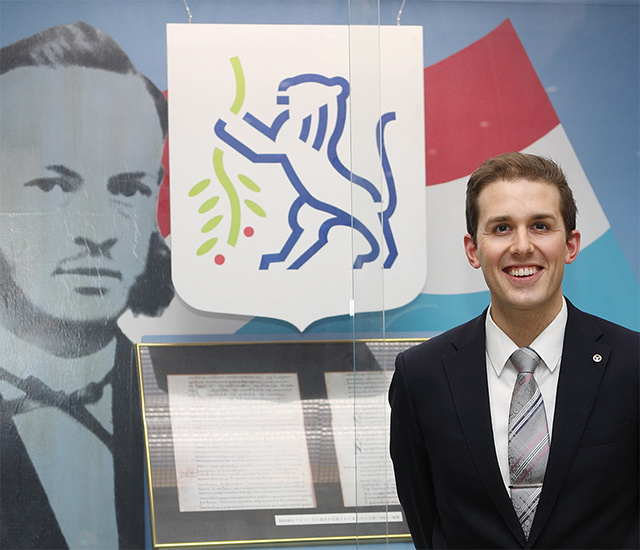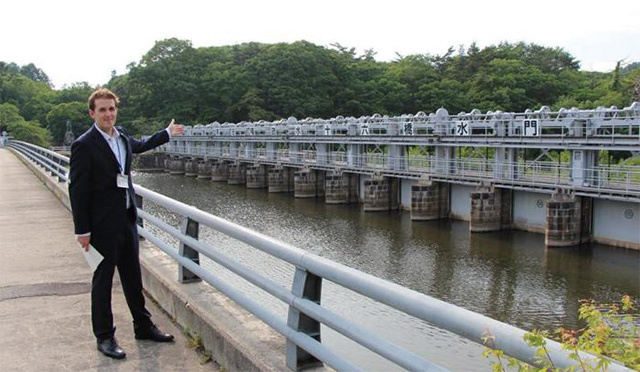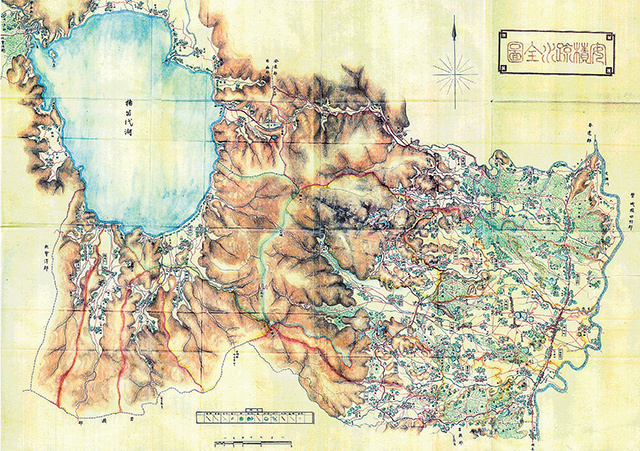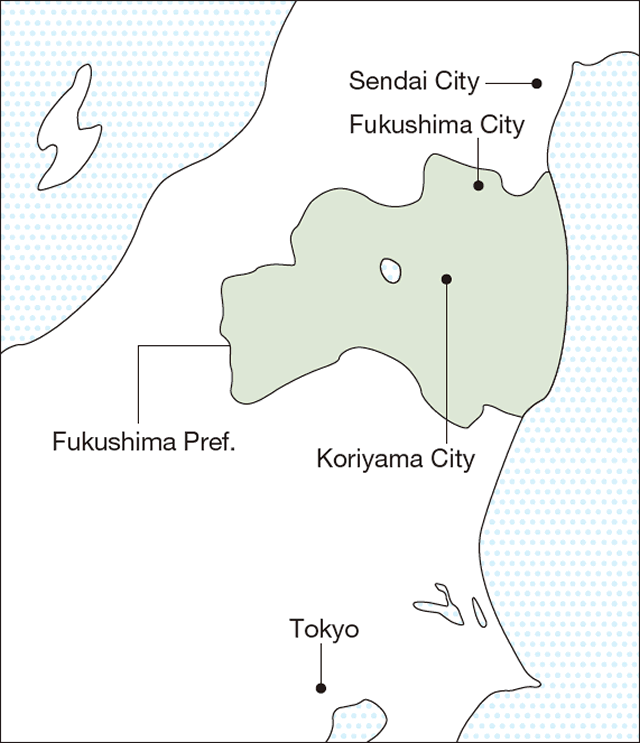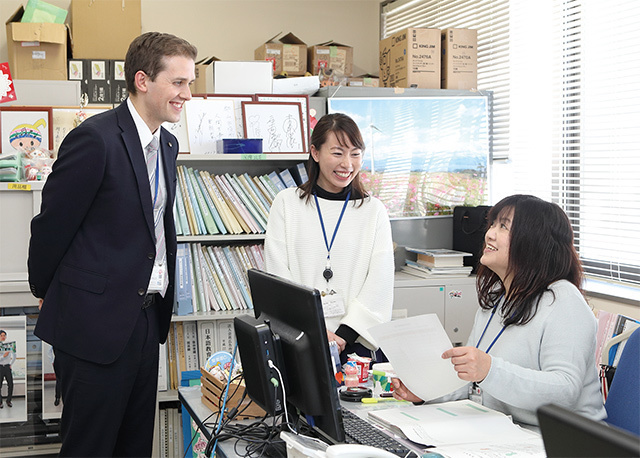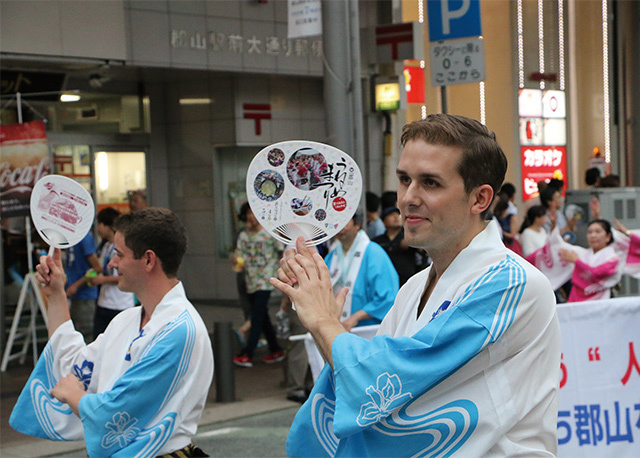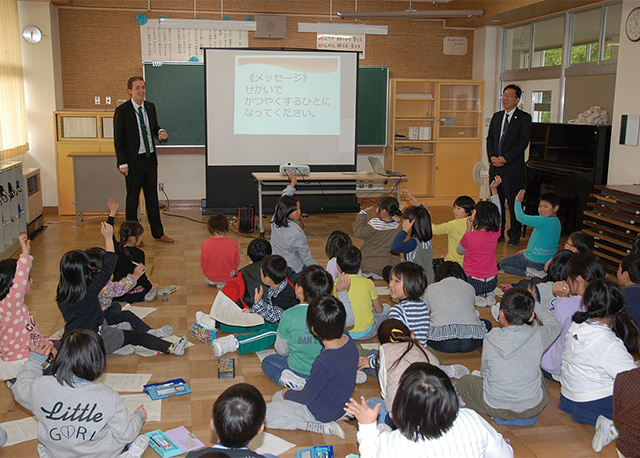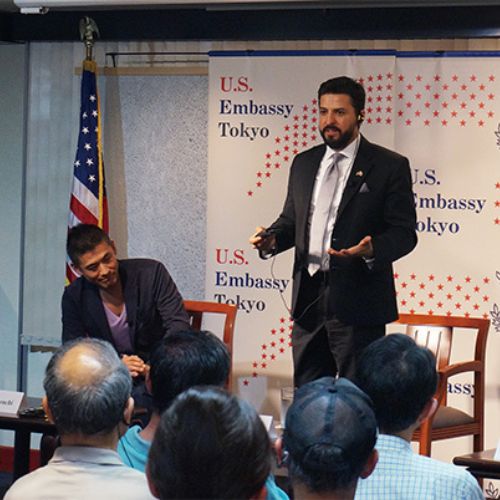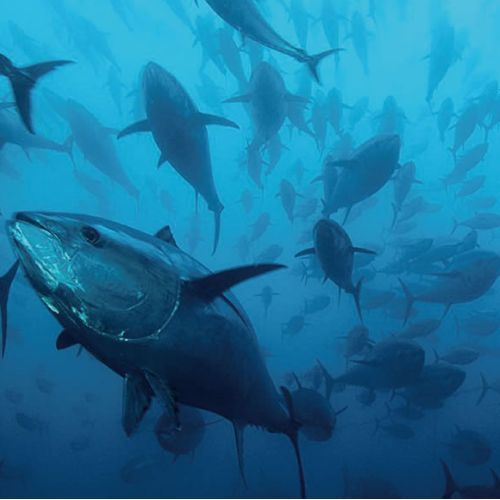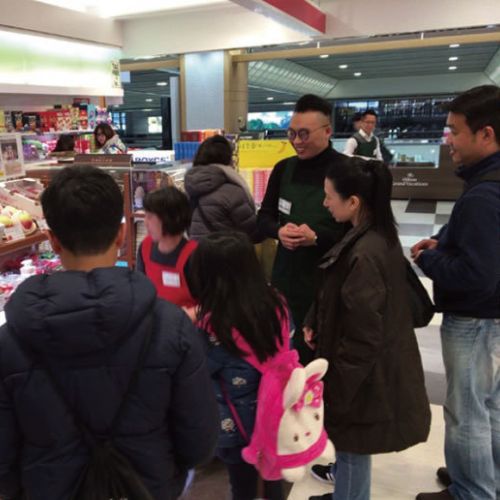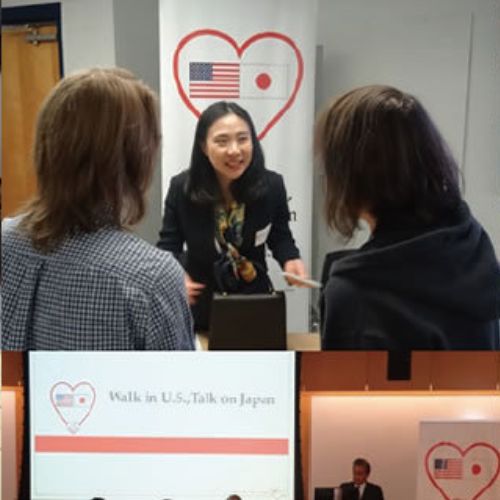My first contact with Japan came through watching dubbed anime, which is probably true for most of us in Europe. I guess I first heard the language while watching Naruto in the original Japanese. But as I tried to make sense of the sounds I was hearing, I was unaware of how my country’s long history with Japan would strongly influence my future career.
Joost Kralt
Born in Sassenheim, the Netherlands. Graduated from Zuyd University and Leiden University. Has been working as a CIR in Koriyama, Fukushima Prefecture since August 2015. Enjoys spending time in Fukushima’s beautiful countryside and attending dramatic local festivals, as well as speed skating and karaoke.
I first studied Japanese at Zuyd University, taking part in an exchange program with Kyoto University of Foreign Studies during 2009 for five months. This was followed by four months at the Japan Foundation Japanese-Language Institute, Kansai. The warmth and kindness of the local people left me with a soft spot for the Kansai area.
After this, I studied Japanese language and culture and international relations for my master’s degree in Leiden, a Dutch town not far from The Hague. While studying there, I was selected for an internship at the City Hall of Nagasaki in 2014. Nagasaki and the Netherlands have a long history of trade and cultural exchange. During the Edo period, the Netherlands was the only country in Europe that was permitted to trade with Japan. Dejima, a small island in Nagasaki, was the only port that was open to Dutch ships. This was as a result of Japan’s strict isolationist policy. This special relationship was further celebrated in 2017 when Nagasaki and Leiden became sister cities.
After my return from Nagasaki and my subsequent graduation, I applied to become a Coordinator for International Relations (CIR). I was thrilled to be accepted, and I was soon dispatched to Koriyama, Fukushima. Like Nagasaki, Koriyama has a profound connection to the Netherlands. It could be said that Koriyama owes its development largely to the efforts of one Dutch man.
Joost standing in front of the Jurokkyo Sluice Gate, a key component of the Asaka Canal construction project. It regulates the water level of Lake Inawashiro while allowing water to flow to the Asaka Plains.
Up to the 1870s, Koriyama’s fields were so dry that fights broke out over water usage, so an expert in hydraulic engineering by the name of Cornelis Johannes van Doorn was invited to Koriyama to help irrigate the area.
The work he oversaw provided a steady flow of water through the Asaka Canal to Koriyama, paving the way for agriculture and industry to develop. Local schoolchildren all know of his contribution to their hometown, with a statue in his honor.
This sense of gratitude is felt so deeply that Koriyama City decided to construct a memorial to him in the Netherlands. A gravestone was carved from local rock, shipped to Amsterdam and installed there. This was also backed by a pledge to provide 100 years of maintenance. Every few years, a delegation from Koriyama visits this grave to pay their respects. In addition to this recognition, van Doorn’s hometown of Brummen has been sister cities with Koriyama since 1988.
On arrival in Koriyama I came to share Koriyama’s appreciation for his hard work, because in August 2015 when I stepped out of the Shinkansen bullet train the temperature was 38°C (100.4°F). Without a water supply, I would have surely perished! But thankfully the heat was not the only warm welcome I received, as my new colleagues quickly helped me feel right at home. Thanks to them, I soon found my feet as a new member of the Koriyama International Policy Division.
From teaching introductory Dutch language lessons to translating and performing the Koriyama City mascot’s theme song, my job here is very rewarding. I also publish EiGo Koriyama, an English magazine for our many foreign residents. It contains news and information on local events, including strawberry picking, shrine visits and festivals. My favorite event by far is the Taimatsu Akashi, a festival in the town of Sukagawa, south of Koriyama. Honoring those who perished during the civil wars of the sixteenth century, this fire festival sees giant torches carried up Mount Gorozan, the largest of which measures ten meters (33 ft.) long and weighs three tons. They are then placed upright and set alight.
But Koriyama isn’t all fire and fury. I love to escape to the countryside during my time off. In the summer I go for drives in Fukushima or go for a swim in Lake Inawashiro, the fourth largest in Japan. There are also two great skate rinks nearby, where I’ve recently started speed skating again, a sport I used to practice back home in the Netherlands. In fact, Koriyama has been selected as a Host Town of the Netherlands for the Tokyo 2020 Olympic and Paralympic Games.
I haven’t made up my mind what I’d like to do after finishing my CIR contract. Perhaps I’ll study translation in more detail, but I’d also like to try working in the private sector in Japan. I’d like to continue strengthening ties between Japan, the Netherlands and the rest of the world. For those considering applying to the JET Programme, I’d say this: Go in with an open mind, and read up on articles like this so that you know what might be asked of you. But most of all, just do it!

























